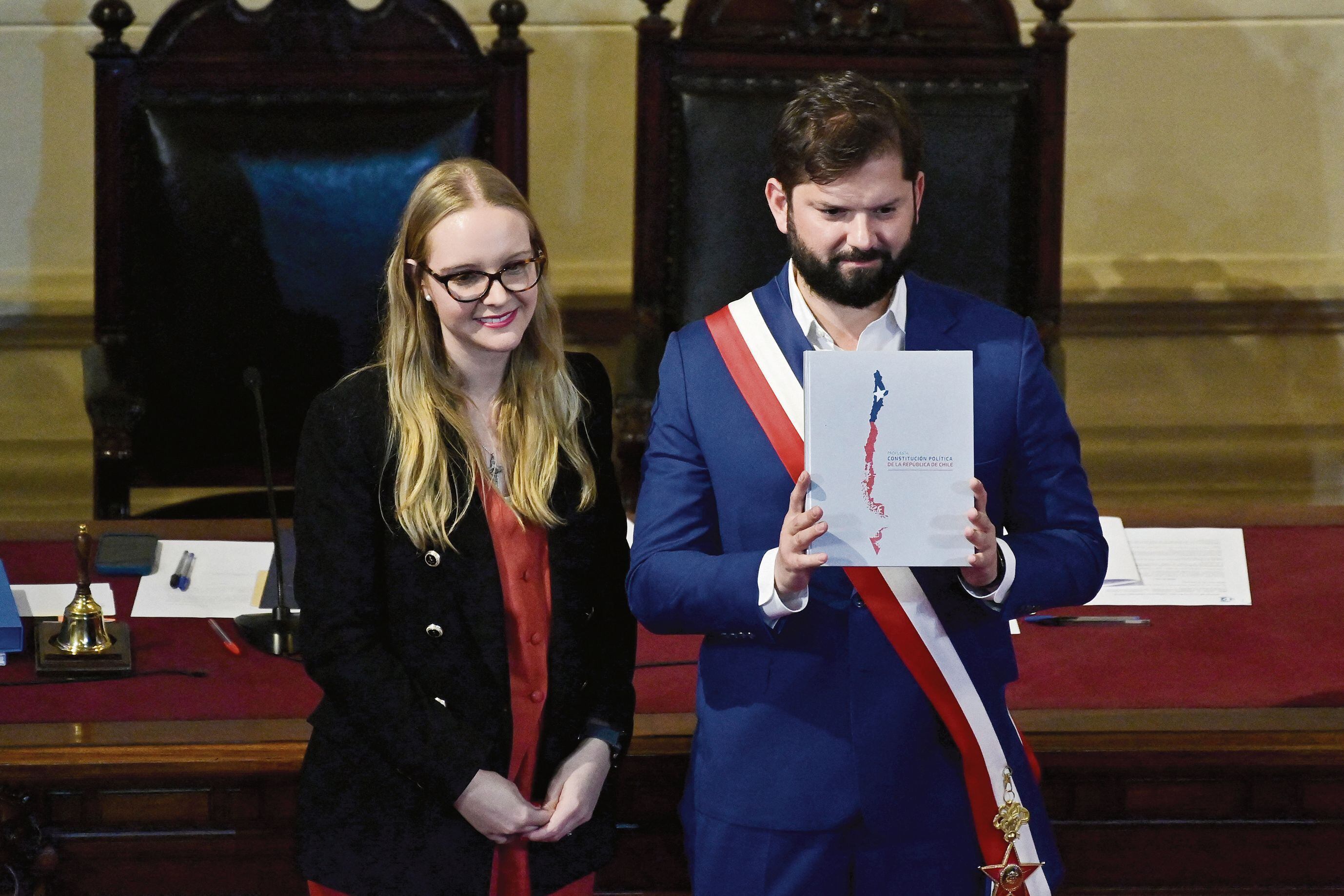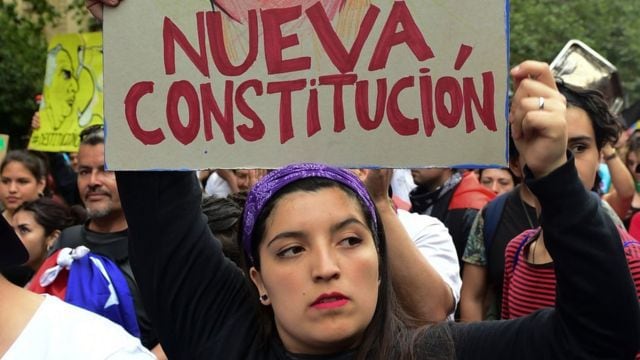This Sunday closes the long chapter of the new Constitution for the Chileans. Hailed as the solution to the country’s problems during the 2019 social crisis, now only indifference and apathy accompany voters who must return to the polls to approve or reject the second Magna Carta proposal, after the first was categorically rejected last year by 63% of the population.
TO LOOK: Ortega vs. beauty: how did the victory of the new Miss Universe provoke more persecution in Nicaragua?
Although the poll numbers – which in Chile have also been losing credibility – point to a Contra victory, the difference between the two options has been decreasing in recent weeks. However, few expect a surprise.
What is not surprising is the satiety that has gripped the population. Today will be the fifth elections linked to the constitutional process and Chileans feel that on this path they have achieved little, even more so if after four years of political discussions they end where they began: with the same 1980 Constitution as the country’s main legal text.
“The first process – which lasted between 2020 and 2022 – had a lot of interest from the population and this was palpable even among those who were previously not interested in politics”, comments Chilean political scientist Christopher Martínez, professor of Science. Political Journal of the University of Concepción. However, after the overwhelming rejection of the first text in September 2022, people traded hope for disappointment. “Since May last year, when it was necessary to elect new councilors for this second process, the perception is that people were not even angry, but rather that they knew nothing about the subject. “There was complete indifference,” he adds.
Throughout this process it was already clear that changing the Constitution was not the immediate solution to the problems that plague Chileans, such as inequality, lack of money and crime, but at least it should provide the regulatory framework so that certain structural issues were resolved. allow changes requested by society.
However, expectations were very high, while the performance of the political class was very low. Above all, because they changed sides depending on the color of the proposals presented. Thus, the right that never wanted Pinochet’s Constitution to be touched and endorsed the rejection of the first text, is now campaigning in favor of the second draft.
While President Gabriel Boric, who has always defended a change in the Constitution, is now against it and, paradoxes of life, prefers that the text drawn up during the dictatorship be maintained.

“After the initial plebiscite, in 2020, many of the messages that were conveyed were that Chile would be refounded, that there would be more equality. Many expectations were placed that were not in line with what a Constitution represents, but then people saw that it was not going anywhere”, analyzes Martínez.
The path began in 2020, when an overwhelming majority of Chileans – in the middle of the pandemic and with voluntary suffrage – voted to change the 1980 Constitution promulgated by Augusto Pinochet, despite having already undergone 70 amendments, the most important in 2005 during the presidency by socialist Ricardo Lagos. Then, the members of the Constitutional Convention who would be responsible for drafting the text were elected – also at the polls.
And here the knot began. The conventionalists, mostly on the left, were so involved in preparing the articles that they ended up producing a text that did not even have the approval of the Chilean center left itself. For them it was a progressive, modern and advanced Constitution, but for ordinary Chileans it was too much. Considering Chile as a plurinational state, allowing abortion, eliminating the Senate and approving the establishment of parallel justice for indigenous peoples were the most controversial articles and caused the population to reject the text by an overwhelming majority.
Thus, in September 2022, and with a mandatory vote, Chileans said No to the proposed Constitution drawn up by the left. Immediately, the second process began and in May of this year the new members who would draft the new text were again elected (this time in a mixed modality, but which left the now Constitutional Council with 50 members, the majority of them right-wing). ).
The project presented – the one that will be submitted to the polls today – falls into the same error of being dogmatic and pulled towards one of the ideological poles, and has been used more as a government program than as a framework text that will govern the laws.
Although Chile is today considered a social and democratic state based on the rule of law, the nomenclature has not been enough for the left, as the financial sector continues to be prioritized and there is no major progress with regard to more equal access to healthcare. and education.

“A great lesson that the first process left us was the need to find spaces for convergence, but what was done was for extreme positions and led us to an exclusionary Constitution, very maximalist and which shows the little learning of the political elites”, he stated. . comments to CNN Chile academic Claudia Heiss, head of the Political Science department at the University of Chile.
This process was not only complex and exhausting, but above all very confusing. We have already said that Boric’s government will end up celebrating Contra’s victory, which will allow him to breathe a sigh of relief if Pinochet’s Constitution is maintained, something he has always opposed.
Likewise, José Antonio Kast’s right-wing and its allies led this second process and a victory would put them within striking distance of the next electoral campaign. Losing, however, would further expose their divisions. In fact, the most right wing of the Republicans decided to vote Against and even abandon the group.
“The group that prepared this new text is trying to make this a plebiscite on the government’s performance or evaluation”, warns Martínez. Therefore, the approval or rejection of the new Constitution is, above all, a game where the balance of power between right-wing and left-wing political groups is at stake.
Source: Elcomercio
I am Jack Morton and I work in 24 News Recorder. I mostly cover world news and I have also authored 24 news recorder. I find this work highly interesting and it allows me to keep up with current events happening around the world.

:quality(75)/cloudfront-us-east-1.images.arcpublishing.com/elcomercio/73RFTB2VDJDMVIUDC63IFORSMU.jpg)

:quality(75)/cloudfront-us-east-1.images.arcpublishing.com/elcomercio/KNQ4BJPCBJDCDNUCHPQVA6V5D4.jpg)
:quality(75)/cloudfront-us-east-1.images.arcpublishing.com/elcomercio/BXSJVBKUMVEHFGNSSRDTASTBGY.jpg)
:quality(75)/cloudfront-us-east-1.images.arcpublishing.com/elcomercio/72Z4LY37UBADXH2F5PV3YCQ3OU.jpg)
:quality(75)/cloudfront-us-east-1.images.arcpublishing.com/elcomercio/JTSXE6R5V5HWDLRHODTRVHM2NE.jpg)
